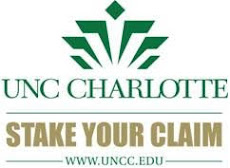By Mary Lynne Calhoun
Dean, College of Education
An 18th century
baroque palace was the setting of an international discussion on 21st century
education policy among delegations from Russia, Israel, Japan, China, the
United States, and Germany, Oct. 10-11. The occasion was a
celebration of the 50th anniversary of the founding of the
Ludwigsburg University of Education (Germany) through a gathering of the
university’s international partners.
UNC Charlotte Provost
Joan Lorden and I joined delegates from institutions including the University
of Yamanashi (Japan), Beit Berl College (Israel), Samara State Academy of
Social Sciences and Humanities (Russia), Tianjin Normal University (China) and
UNC Pembroke (USA).
Each participating
university was asked to present educational policy issues of importance in
their own country. Joan and I made our presentation through a mock
presidential debate based on the education platforms of President Barack Obama
and Governor Mitt Romney.
All of the participating
universities have a substantive role in teacher education in their state or
nation, and though there were many differences among the institutions, our
conversations circled back to very similar interests and concerns. Global
competitiveness, teacher shortages in mathematics, science, and special
education, and the relationship of teacher education to the broader university
emerged as common themes. Concerns about rising tuition costs and rising
student debt also crossed international boundaries, as did the demand for
universities to become more efficient and more accountable.
The power of
international partnerships in teacher education was affirmed through the
universities’ shared commitment to prepare teachers with global perspectives.
The Ludwigsburg University of Education is one
of UNC Charlotte’s most established international partnerships. Student and
faculty exchanges between the two universities began over 30 years ago; since
then more than 300 students have participated in exchange programs between the
institutions.
 |
| The author (right), with Joan Lorden (left) and colleague. |
The UNC Charlotte-Ludwigsburg University of
Education partnership has expanded to include an annual faculty symposium
designed to highlight cross-cultural education issues and to share findings
from collaborative research projects. Three groups of UNC Charlotte
elementary education majors and faculty have studied at Ludwigsburg for a full
semester to explore international issues and practices in teacher education.
Engagement such as this extends UNC Charlotte's global reach and burnishes our reputation for high quality, high value education on a global stage.
# # #





